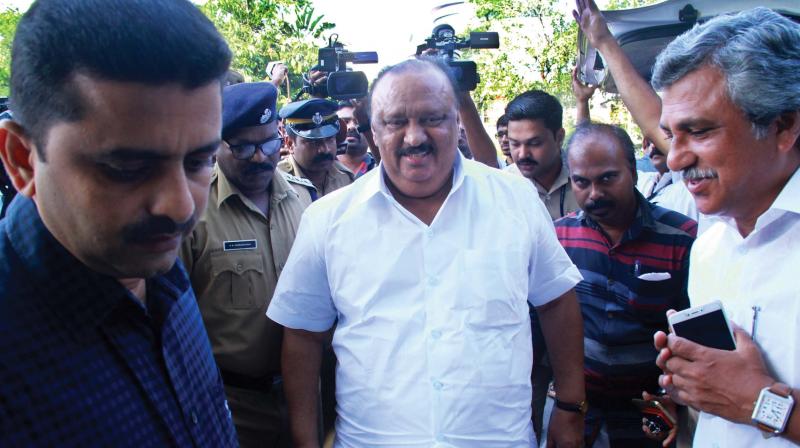Thomas Chandy's writ plea left Kerala High Court perplexed'
The explicit allegation in the petition against the revenue minister has been cited by judge in this regard.

Kochi: A division bench of Kerala High Court which dismissed the writ petition by former transport minister Thomas Chandy to quash the report of the Alappuzha district collector has held that Mr Chandy’s action seeking court intervention in a matter concerning a government action against him was against the constitutional principles and the concept of the collective responsibility of the cabinet. The 30-page verdict by the division bench mainly focused on the propriety of a person occupying the position of a minister initiating a legal proceeding against his own government.
After examining the matter in detail, the judges stated that the petitioner being a minister in the state cabinet cannot invoke the power of the writ petition to prevent the state government officials from executing the orders passed by another minister. “We were today perplexed, to say the least, to see a writ petition filed by a petitioner, who is concededly a minister and a member of the council of ministers of the government of Kerala, against his own government and its functionaries,” wrote a judge.
Rejecting the contention of Mr Chandy’s counsel that he has approached the court on his individual capacity, the judge observed that a “person occupying the position of a minister cannot file a writ petition or initiate legal proceeding against the government, of which he is part, challenging orders or action issued or initiated against him by the government or its functionaries, alleging infraction of law by him and that he cannot claim any right to mount such a challenge on the ground that he is a private citizen as long as he occupies the position of a minister.”
The division bench also dealt in detail about the violation of the principle of collective responsibility of the cabinet by the petition moved by Mr Chandy. “I am of the considered view that a minister and a member of the cabinet cannot be permitted and would not obtain the locus to file a writ petition, under Article 226 of the Constitution of India, or such other proceeding, arraying his own government as a respondent and seeking directions against it, in an issue he is personally involved in, and in which action is initiated by another minister in the Cabinet having jurisdiction over the issue concerned, this being an affront on the well honoured principles of cabinet’s collective responsibility enshrined in Articles 75 and 164 of the Constitution of India,” said the judgment.
The explicit allegation in the petition against the revenue minister has been cited by judge in this regard. The petitioner has mentioned that the report against him by collector has been “based on the intervention of the office of the revenue minister.” The court, however, said Mr Chandy has the freedom to approach the district collector to rectify the references with respect to the ownership of pieces of land attributed to him in her report.

